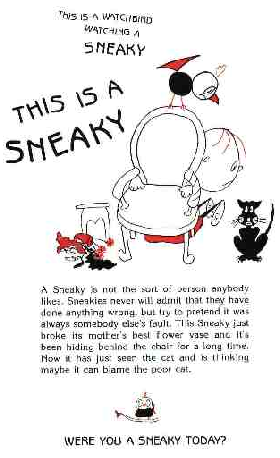But if that’s the aim – less unwanted intrusion from the past – it would seem to be counterproductive to reflect daily on how “I cannot escape the consequences of my actions.” On the surface of it this ought to yield exactly the “torments of hell” Tolstoy was bemoaning.
I suppose that to go below the surface would be to enquire into just what the Buddha might mean by apparently supposing that many of us are attempting to escape the consequences of our actions. (And that that would be a source of suffering.) I’ve had the odd thought that it might be exactly in these painful self-recriminations of ours that we are attempting to escape those consequences. That came to mind from a couple of sources. One was a therapist’s comment about dieting, that for it to be successful, the dieter must first learn to accept his or her humanity and not beat themselves up over past lapses. I thought that if beating oneself up over the past is not accepting it, then it must be denying or attempting to escape it.
But then how is beating yourself up over something an attempt to escape or deny it? Or how might that be?
If it’s an act. A performance we put on to benefit someone else, our conscience, say, or superego, or Watchbird (>>>), or whoever we suppose is constantly watching over us. The idea would be to show whom/whatever that we’re right on top of it, we know we did wrong, we feel it, and they can see that. They know we’ll do better next time.
Of course, anyone who has ever felt the sudden pangs of remorse or self-recrimination knows this sudden flashback is no act. It is more like an attack out of the dark brought on by a passing, quite accidental association – the neighbor decides to put out the flag on Flag Day, and watching him you are suddenly ripped back into that time in your past when you, say, got caught shoplifting a flag from Woolworth’s Five and Dime. The humiliation is real again, you blush and cringe. Who’s acting?
But besides the thought that in some sense it’s no act, it’s quite real, I want two other thoughts –
1) the “I” that feels again the shame is in some sense putting on a performance for his Watchbird, letting her know he’s OK by showing her he’s feeling the wrong of it and, implicitly, not going to do that again. Maybe you/I/Tolstoy/Pushkin was a sneaky today or yesterday (>>>), but we certainly won’t be tomorrow. Trust me! You can let me alone now. I’m OK! OK?
Of course, if we were really OK, we wouldn’t have to go through this painful charade in the first place. We might see the chap putting out the flag, and that might trigger an association with this earlier event, but we would already have “taken care of that” in some manner, and we would just acknowledge the fact, the link, the recollection – without all the anguish, without Alexander Pushkin’s stinging serpent of my heart's remorse or Stephen Dedalus’ Agenbite of Inwit.
I want to see this sort of charade, this revisiting scenario, this anguished flashback of regret, as evasion, not as confrontation or preventive maintenance (as in, just so I don’t make this mistake again). It is some mode of denial and attempt to escape. And it famously does not work. The flashbacks recur relentlessly. Obsessively in the case of some forms of mental illness, but more often, quite normally, just ubiquitously in time – trivially or more substantially, recent or remote. There exists some sort of Pushkin scout always out there scanning the horizon for every smallest opportunity to report back to Watchbird Headquarters, to make the case by his very suffering again the embarrassment or pain, that he’s really OK – “Oh, what a good boy am I.” (>>>)
There are also other forms of denial and attempts at escape. There is, for example, Dmitri Karamozov’s flinging himself over the edge into the pit of some depravity. That is, we have our binges – food or alcohol or gambling or... This is a kind of denial through rebellion. Its source, though, is the same gnawing self-doubt, some sense of not being good enough for the Watchbird. (Dostoevsky makes this very clear in the Dmitri excerpt above.)
And –
2) there are other I’s a person has. This is an idea we have from many sources. I especially like a version of it offered by Stanley H. Block, a psychiatrist some accident of web browsing brought me into contact with a couple of years ago. He looks to what he calls the Identity System as the core of people’s anxieties, and he suggests we dance quite a troubled frenzy around that core, which I often think of as the Watchbird or my mother/grandmother or Isys – combining Dr. Block’s concept with the Egyptian mother goddess. But the core of Block’s therapeutic approach is to persuade us that we are not limited to that identity system. A person is more than her pain.
More Block on the next two pages.
I remember cartoons like the following –
very vividly from my Grandmother’s using them to train me as a child – featured in the Ladies Home Journal. Their author, Munro Leaf, is best known for his children’s book, The Story of Ferdinand.
See Pema Chödrön’s When Things Fall Apart, especially the first few chapters, for a great teacher’s extensive development of this theme.
Wikipedia has a fine entry for this nursery rhyme tag.
Click image to go to Wikipedia article on Isis. Image by Jeff Dahl, terms of use here.

| The Fifth Remembrance 1 |
| The Fifth Remembrance 2 |
| The Fifth Remembrance 3 |
| Dr. Block and Isys 1 |
| Dr. Block and Isys 2 |
| Dr. Taylor and near death 1 |
| Doris's Death |
| Whose journey? Whose truth? |



